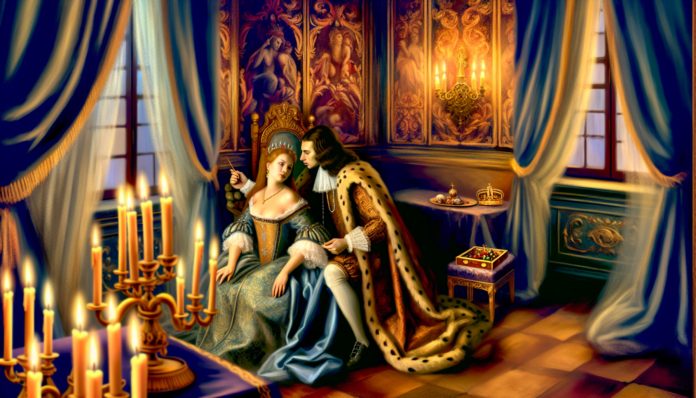Introduction
At the heart of the Spanish monarchy’s tumultuous history lies the riveting tale of King Alfonso XII, a ruler whose scandalous love affairs captivated the nation during the late 19th century. Born in 1857, Alfonso ascended to the throne in 1874, ushering in a period marked not only by political instability but also by personal exploits that echoed through the halls of his palace. During a time when Victorian morals governed much of Europe, Alfonso’s seductive escapades sparked gasps of shock and intrigue, raising eyebrows while simultaneously reflecting the society’s duality between public propriety and private indulgence.
The Scandal
One of the most notorious affairs that plagued King Alfonso XII was his relationship with the famous Spanish actress, María Cristina. Rumored to have begun before his marriage to his cousin María de las Mercedes, their romance was a public spectacle, drawing both admiration and condemnation. The pair were often seen in high society events, carefully avoiding overt displays of affection, yet their chemistry was palpable.
However, it was not just this romance that caused a stir. Alfonso’s proclivity for numerous mistress engagements further scandalized the kingdom. He had several known affairs, including a well-documented liaison with the captivating and enigmatic Spanish aristocrat, the Countess of Casa de Alba. These relationships were often discussed in whispered tones among the elite and gossip columns alike—pamphlets circulated in Madrid detailing his escapades, effectively turning him into a tabloid fixture long before such media was commonplace.
One particular episode involved a lavish banquet where Alfonso’s attentions were so evidently fixated on his mistress that it led to public outrage. “A king should be above such debauchery,” newspapers proclaimed, questioning both his moral integrity and fitness to rule.
Key Quotes and Reactions
“Kings are not mere mortals; they are paragons of virtue and conduct!” sneered one critic in a local publication. Such sentiments characterized the prevailing attitude towards Alfonso’s lifestyle. While many citizens indulged in gossip about the king’s escapades, conservative factions pushed back, asserting that his behavior undermined the very foundations of the monarchy.
Moral and Cultural Analysis
The societal reaction to Alfonso’s scandals exhibited a fascinating duality. While some members of the aristocracy dismissed his infidelities as harmless pursuits of pleasure, others viewed them as a direct affront to traditional values. The scandal was particularly damaging to women involved; often scrutinized more harshly than their male counterparts, they were labeled as ‘temptresses’ who lured the king into moral depravity.
In contrast, modern readings of such events would likely evoke a very different response. Today, the focus often shifts towards the empowerment of individuals—acknowledging the complexities of consent, the responsibilities of leadership, and the societal constraints placed on both men and women. A king’s private life would still attract media attention, but the narrative could lean more towards discussions of personal agency and the implications of public versus private personas.
Consequences for All Involved
For Alfonso, while his reign continued, his infidelities tarnished his public image, leading to a sense of scandal that hung over the monarchy. In his personal life, he dealt with the fallout of broken relationships, betrayals, and the societal division that his actions had exacerbated.
Conversely, the women involved often faced greater societal repercussions. The Countess of Casa de Alba, for instance, became a symbol of the sexual politics of the era, her reputation forever intertwined with the king’s indiscretions. Today, discussions around such figures often revolve around victimization and fairness, revealing a shift in how society processes and understands power dynamics.
Thus, the legacy of Alfonso XII not only illuminated the intricate web of desire, power, and scandal of his time but also offers a reflection on how far societal norms have evolved, juxtaposing the censorship of yesteryear against the more open, yet complex, conversations about love, loyalty, and morality in modern society.

